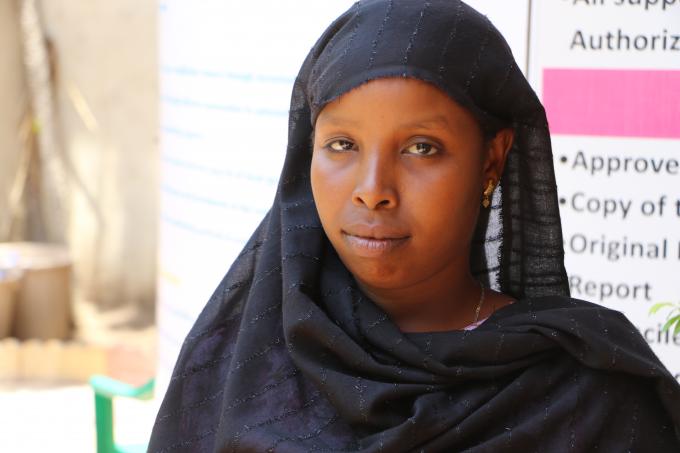“Two of my friends died when we were trying to get to Saudi Arabia”: Anisa’s Story
Anisa, 16, has never been to school. In 2019, Anisa joined five of her friends from her village to leave her home village Oromia Region’s Derer district for Saudi Arabia through Djibouti. Anisa’s search for better life in Saudi Arabia was cut short when she was caught and arrested in Djibouti and put prison before she was sent back home.
Anisa’s story in her own words (quotes):
“ My name is Anisa. I am 16 years old. I was born and raised in Deder. Unfortunately, I never went to school and as a result, I could not find a job here, so the only way I could find a better job and support my family and myself was by leaving the country. Before us, I saw many young people who had migrated from here to other parts of the world and were able to support their families and themselves. That is why my friends and I were motivated to go there. However, we soon realized that the reality was very different from our perceptions when we started our journey to Djibouti not far from our country.
In 2019, together with five of my friends, we first travelled to Diredawa town by bus. We then continued our journey to Djibouti along the desert with nothing to eat. We travelled for more than five days on foot. Two of my friends died from exhaustion, starvation and thirst in the desert before reaching the border with Djibouti. When we finally arrived at the Djibouti border, the border guards soon caught us and immediately sent us to prison. After three months of suffering in the most notorious prison in Djibouti, we were able to return to our country with the support of the International Organization for Migration.
Before I arrived in Djibouti, I had a fall and sustained an injury. Although I was not able to get treatment at the time, I was able to recover for a while. However, I still suffer from the trauma of that difficult time and I have a lot of stress. Ever since I returned home, I feel unhealthy and mentally unstable. I am currently receiving treatment with the help of my brother. When I left my country two years ago, I was completely healthy. However, I now suffer from ill health due to the tragedy that befell me during migration.
As soon as I returned home, I went to my hometown first, but my stepmother did not welcome me and I immediately moved to Diredawa to live with my brother.
Four months ago, Save the Children’s case management staff contacted me and asked me about my situation. Since then, I have been receiving close support and care from them. They provided me with counselling, psychosocial help, and healthcare service. Now after this support, I see significant improvement in my health and I am able to gain a better understanding of the seriousness and danger of illegal migration. This is why I and many other young people in my village came to the decision not to get involved in illegal migration.
On this occasion, I want to thank Save the Children and its staff for their so far support and would like to ask for your continued support until our situation improves.
My message to young people like me is that they should know that illegal migration is terrible, that there is hunger, thirst and even death.
In the future, I want to open my own business so that I can have good income and start family.”
What is Save the Children doing to help Anisa and other returnee in her village:
Through its IOM funded Sustainable Reintegration of Vulnerable Returnee children project in Eastern Hararge zones of Oromia Regional State, Save the Children supports Anisa and young people like her through preventing and illegal and risky migration or supporting those that returned home in collaboration with the woreda youth, children and women affairs office.
As part of strengthening the child protection system in four of the target woredas, Save the Children provided training to 55 community facilitators and para-social workers on case management and referral system. As per the case identification done by the case managers, 159 returnees were provided training on financial literacy skill and business entrepreneurship skills that will enable them to start their own business.
 Ethiopia
Ethiopia 